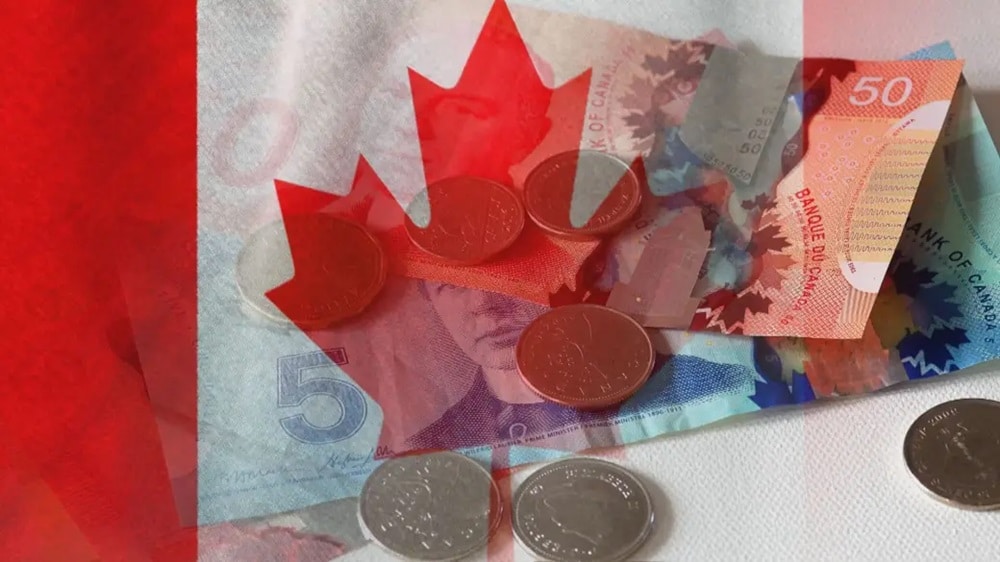As Canada’s economy enters into a recession, the main banks are attempting to reinforce their balance sheets against mounting bad loans, but instead of turning to shareholders for funding, analysts predict the lenders may sell non-core assets.
With the economy slowing and fewer jobs being added, banks anticipate that more individuals would fail on credit card and mortgage payments, reducing earnings.
Banks have typically raised capital by issuing shares or bonds, but with the stock prices of the top five banks down between 5% and 11.5% this year, they believe that additional equity dilution is not the best option.
“Canadian banks are running a little bit tighter on capital than they have in the past,” Adrienne Young, director of corporate credit research at Franklin Templeton Canada, explained.
“What they would much rather do is… find small non-core assets that they’re not going to grow very aggressively anytime soon and say, right, it has done its job for us, moving on.”
Last month, Bank of Nova Scotia returned to Canadian Tyre its ownership investment in the retailer’s financial services section, raising C$895 million ($650 million), while Bank of Montreal is shutting down its indirect vehicle lending business and apparently considering to sell its RV loan portfolio.
While shareholders and analysts declined to mention specific assets, they stated that banks may be able to sell portions of their loan books, which might be appealing to fixed-income investors and private equity firms.
Since 2000, the five Canadian banks have spent around C$147 billion on acquisitions, acquiring credit-card portfolios, wealth and asset management organisations, and smaller regional banks in the United States and elsewhere as part of their expansion objectives.
In August, Scotiabank, which has a CET1 ratio of 12.7%, stated that it was preparing for a higher capital requirement.
Some experts have speculated that Royal Bank of Canada may need to raise cash as it nears the completion of its acquisition of HSBC’s domestic operations, but the bank has stated that the merger will be completed smoothly.
Following the completion of the HSBC Canada transaction, RBC expects its CET1 ratio to remain above 12%.
According to Anthony Visano, head of investment analysis at investment firm Kingwest & Co., freezing dividend growth could reduce the need to sell assets.
Bank of Canada Rate Hikes
Meanwhile, more interest rate hikes from the Bank of Canada are still on the table, as its governing council is divided on whether rates need to be raised further.
The central bank issued a summary of deliberations today, outlining the conversations that governing council members had in the run-up to its Oct. 25 rate decision. The summary shows that members of the governing council are divided on whether interest rates are high enough.
“Some members believed that raising the policy rate would be more likely than not necessary to return inflation to target.” Others saw the most plausible scenario as one in which a 5% policy rate would be sufficient to return inflation to the 2% objective if it remained at that level for a long enough period of time,” according to the summary.
The Bank of Canada finally opted to remain patient, but members of the governing council agreed to reconsider whether rates needed to climb further.
The head of the Bank of Canada, stated this week that companies are normally hesitant to raise their prices for fear of losing customers, but strong inflation has made them considerably more eager to do so recently, without fear of consumers tapping out.
The Canadian inflation rate dipped to 3.8% in September, although underlying pricing pressures have not eased significantly in recent months.
The central bank notes that core inflation measurements, which exclude volatile price movements, have maintained in the 3.5 to 4.0 percent range over the last year.
The Bank of Canada’s governing board attributed the Bank’s continued high inflation to a variety of causes, including rising housing prices.
The central bank’s interest rate increases are largely to blame, as they have resulted in higher mortgage interest rates for Canadians.
However, the central bank has stated that other shelter costs remain high, owing to housing market imbalances.
“Higher interest rates would normally exert downward pressure on house prices and other costs that are closely linked to house prices, such as maintenance, taxes and insurance,” according to the Bank of England.
“However, the economy’s ongoing structural shortage of housing supply was keeping house prices elevated.” And Canada’s rapid population growth had exacerbated the existing housing supply-demand imbalance.”
Air Canada Resumes Directs Flights to Thailand
Air Canada Resumes Directs Flights from Vancouver to Thailand








